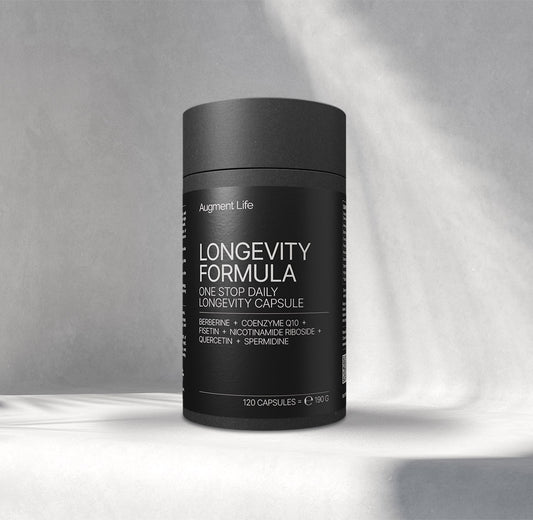Metionin är en av de nio essentiella aminosyror som din kropp inte kan producera på egen hand, så du måste konsumera den genom mat eller kosttillskott. Den finns i en mängd olika livsmedel, bland annat kött, fisk, grönsaker, ägg och mejeriprodukter.
Metionin är oumbärligt för olika fysiologiska och biokemiska processer. Det minskar oxidativ stress och krävs för normal utveckling och celltillväxt. Denna essentiella aminosyra är viktig för tillväxt och underhåll av mager kroppsmassa (LBM), vilket inkluderar organ, muskelvävnad och benmassa (1).
Fortsätt läsa och ta reda på vad som är rätt metionindosering!
Metionin - Livsmedel
Metionin är en essentiell aminosyra som du behöver få i dig genom mat eller kosttillskott. Den finns i stora mängder i (2):
- ägg,
- kycklingbröst,
- vissa fiskar (t.ex. lax, mahi-mahi eller delfinfisk och hälleflundra)
- mejeriprodukter,
- spenat,
- zucchini,
- svampar,
- sparris.
Metionin - Hälsofördelar
Det finns dock flera vetenskapligt bevisade hälsofördelar med att öka sin metionindos och ta det genom orala kosttillskott:
- Metionin stöder produktionen av glutation, en kraftfull antioxidant, vilket bidrar till att minska oxidativ stress (3),
- Metionin kan minska DNA-skador, vilket kan bidra till att förebygga cancer och andra degenerativa sjukdomar (3),
- Metionin kan spela en ledande roll för att minska förekomsten av cancer (3),
- Metionin spelar en viktig roll i immunsystemet (3),
- Metionin förbättrar hepatisk steatos, insulinresistens, inflammation, fibros och benhälsa (4),
- Metionin kan bidra till att minska leverskador (5).
Metionin - Dosering
Metionin spelar en avgörande roll i proteinmetabolismen och är viktigt för den magra kroppsmassan (LBM).
Ett för högt intag av metionin eller ett för lågt intag av B-vitaminer (särskilt B-12, B6, riboflavin och folat) kan dock höja blodets homocysteinnivå.
Högre halter av homocystein i blodet ökar risken för hjärt- och kärlsjukdomar, särskilt hos personer som redan löper risk att drabbas av hjärtproblem.
Därför är det nödvändigt att känna till NOAEL (No Observed Adverse Effect Level) och LOAEL (Lowest Observed Adverse Effect Level) för metionintillskott (1).
Enligt forskning som presenterades under 10th Amino Acid Assessment Workshop är den maximala säkra dosen av metionin som tillskott 46 mg per kg kroppsvikt och dag, vilket motsvarar cirka 3,2 gram per dag för en 70 kg tung frisk vuxen. Detta anses vara NOAEL (No Observed Adverse Effect Level), vilket innebär att det är den högsta dos vid vilken inga skadliga effekter har observerats (6).
Enligt forskning är den dos vid vilken skadliga effekter först observeras, Lowest Observed Adverse Effect Level (LOAEL), för metionintillskott 91 mg per kg kroppsvikt per dag (1), vilket är cirka 6,37 gram per dag för en 70 kg tung frisk vuxen.
Du kan läsa mer om fördelarna med metionintillskott i en av våra tidigare artiklar:
Litteraturkällor:
- Ligthart-Melis GC, Engelen MPKJ, Simbo SY, Ten Have GAM, Thaden JJ, Cynober L, Deutz NEP. Metabolic consequences of supplemented methionine in a clinical context. J Nutr. 2020;150(Suppl 1):2538S-2547S. doi: 10.1093/jn/nxaa254.
- Schnekenburger M, Diederich M. Nutritional epigenetic regulators in the field of cancer. In: Epigenetic Cancer Therapy. 1st ed. [Internet]. 2015:393–425. doi:10.1016/b978-0-12-800206-3.00018-5.
- Martínez Y, Li X, Liu G, Bin P, Yan W, Más D, et al. The role of methionine on metabolism, oxidative stress, and diseases. Amino Acids. 2017;49(12):2091–2098. doi:10.1007/s00726-017-2494-2.
- Navik U, Sheth VG, Khurana A, Jawalekar SS, Allawadhi P, Gaddam RR, Bhatti JS, Tikoo K. Methionine as a double-edged sword in health and disease: Current perspective and future challenges. Ageing Res Rev. 2021 Dec;72:101500. doi: 10.1016/j.arr.2021.101500.
- Li Z, Wang F, Liang B, Su Y, Sun S, Xia S, Shao J, Zhang Z, Hong M, Zhang F, Zheng S. Methionine metabolism in chronic liver diseases: an update on molecular mechanism and therapeutic implication. Signal Transduct Target Ther. 2020 Dec 4;5(1):280. doi: 10.1038/s41392-020-00349-7. PMID: 33273451; PMCID: PMC7714782.
- Cynober L, Bier DM, Stover P, Kadowaki M, Morris SM, Elango R, Smriga M. Proposals for upper limits of safe intake for methionine, histidine, and lysine in healthy humans. J Nutr. 2020 Oct 1;150(Suppl 1):2606S-2608S. doi: 10.1093/jn/nxaa231. PMID: 33000163.











